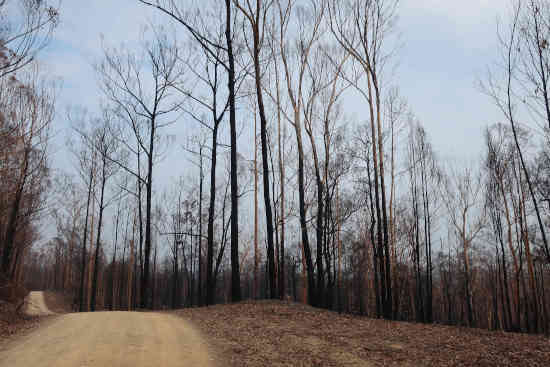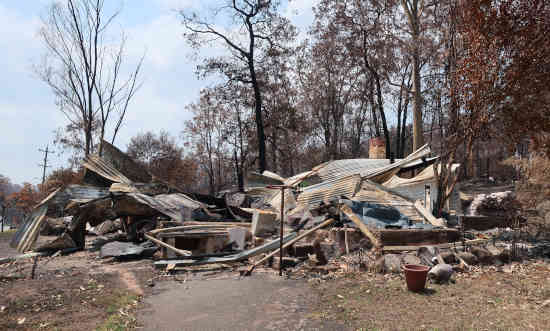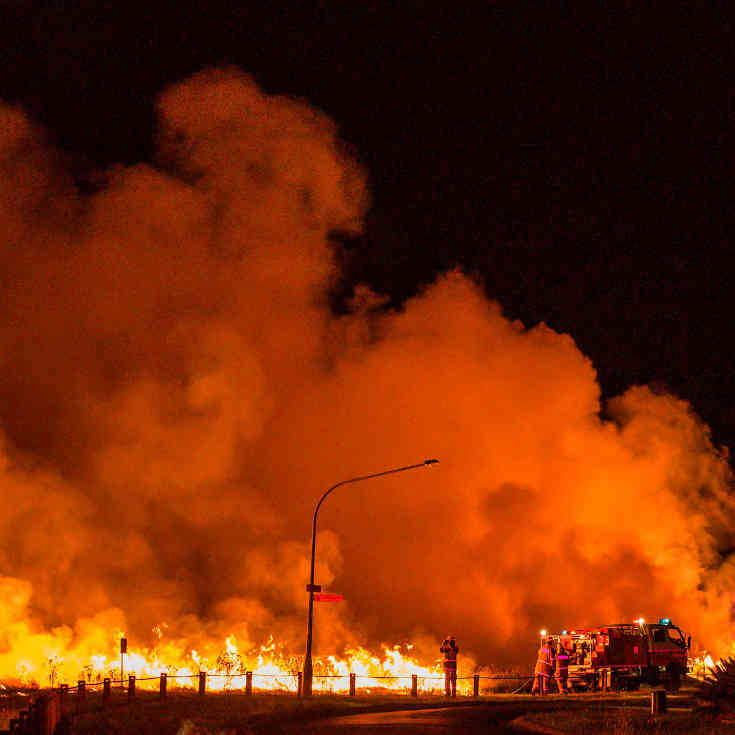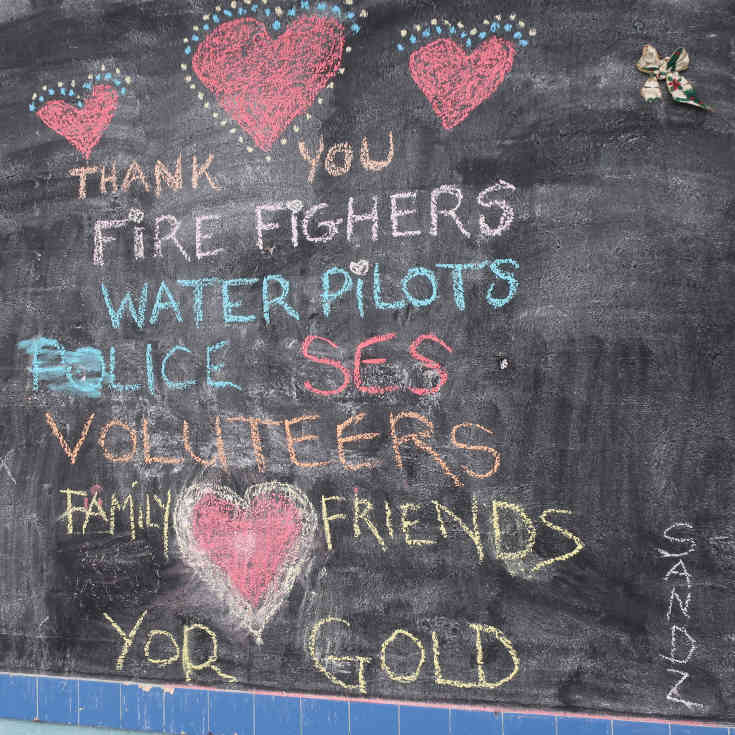The ‘Bushfire Royal Commission’ released its report last week. Its recommendations are important and point the way forward for Australia.
Our government needs to take strong action to address climate change or the future is bleak.
The bushfires
The 2019/20 summer bushfires in Australia burnt 240,000 square kilometres, destroyed more than 3,000 homes and killed 33 people. The fires were considered “unprecedented” because:
- the fire season was unusually long;
- the forest fuel was unusually dry;
- the weather was extremely hot and dry;
- the Forest Fire Danger Index was the highest since national records began;
- the fires were so severe they created their own weather, which included pyro-cumulonimbus clouds and ‘dry lightning’, and on occasions were impossible to control;
- the area of forest burnt was larger than ever before in NSW;
- some fires burnt in ‘permanently wet’ forests that have never burnt before; and
- Australia’s wildlife was enormously damaged.

The Royal Commission
The Royal Commission into National Natural Disaster Arrangements (often termed the Bushfire Royal Commission) was set up by the Australian government in February 2020 in response to these devastating 2019/20 bushfires.
It reported to the government in October 2020, and the report is available online. The Commission made 80 recommendations to improve the future handling of natural disasters.
Climate change in the report
The Commission has made strong statements about the danger of climate change, the need for good scientific information and research, and the importance of managing climate change.
“Climate change has already increased the frequency and intensity of extreme weather and climate systems that influence natural hazards.
Further global warming over the next two decades is inevitable. As a result, sea-levels are projected to continue to rise. Tropical cyclones are projected to decrease in number, but increase in intensity. Floods and bushfires are expected to become more frequent and intense.
The 2019-2020 bushfire season demonstrated that bushfire behaviour is becoming more extreme and less predictable. Catastrophic fire conditions may become more common, rendering traditional bushfire prediction models and firefighting techniques less effective.”
“Australia’s prosperity and security depends on our ability to anticipate, manage and prevent the economic, social and environmental impacts of climate change and variability.”

But missing from the report ….
…. was a strong and direct recommendation on addressing climate change. The report’s recommendations on the importance of climate modelling and projections, and its statement that Australia’s prosperity depends on preventing the impacts of climate change, have unfortunately not been matched with clear recommendations on reducing the emission of greenhouse gases and transitioning to renewable energy.
The problem is clearly outlined, but the Commission has left this important action to the discretion of the government.
Nevertheless, the Commission’s report shows that our government must join other nations in focusing on climate action, or risk even worse bushfires in the future.
The member for Hughes
Craig Kelly MP’s continued opposition to the established science of climate change is a danger to the people of Australia, including the electors of Hughes. We need our local member supporting effective government action to reduce the future risk of catastrophic disasters, not actively undermining it.
Read more

Read more about the 2019/20 fires, their causes and impacts, at Bushfires and climate change, on this site.
Photos:
Main photo: public thanks to emergency services in Batemans Bay, after the town was almost engulfed by the Clyde Mountain fire in January 2020.
Other photos: Burnt out bushland along Middle Ridge Rd, Brooman, and the remains of the iconic Mogo Pottery studio in the century-old former Mogo Catholic Church building, destroyed when the Clyde Mountain fire raged through Mogo in January 2020.
